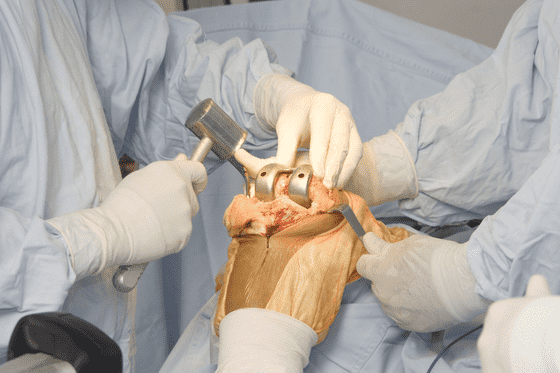9 Easy Facts About Axis Spine And Orthopedics Explained
An orthopedic specialist is a physician who specializes in treating problems of the bones, joints, and connective tissues, and ensuring you preserve a healthy musculoskeletal system., we have very qualified orthopedic cosmetic surgeons that are capable of dealing with people of all ages. I got involved in research study during my very first year of clinical school, and I started making links with orthopedic specialists early on.
Go over the post-operative care strategy with your doctor. Arrange for transport to and from the healthcare facility on the day of surgical procedure.
The Ultimate Guide To Axis Spine And Orthopedics

Your doctor will certainly provide lots of info pertaining to post-operative treatment, consisting of exactly how to remain clean and maintain the medical area tidy. Adhering to these suggestions can prepare you literally and emotionally for your orthopedic surgical treatment. Bear in mind to preserve a favorable overview and depend on your clinical group's knowledge, adding to a smoother recuperation procedure.

Otherwise, you'll simply obtain confused. Consider the large picture. No one expects you to understand anything, so do not try to memorize a lot of random truths. Whether you're running after your kids, dealing with treking trails, or flaunting your ideal dance moves, maintaining your bone and joint system in fantastic form is vital. Or else, joint pain can really screw up your life.
The constant pain in your knee or the stiffness in your shoulder can reduce you down and make basic jobs challenging. Common conditions dealt with by orthopedic surgeons are: Cracks and Bone Trauma: Broken bones and various other injuries from accidents or impacts. Arthritis: Particularly osteo arthritis, which triggers joint pain and stiffness. Benign Soft Cells Lumps: Non-cancerous growths in muscular tissues or various other soft cells. Bone Cancer Cells: Tumors in the bones. Bursitis: Inflammation of the small sacs of.
Facts About Axis Spine And Orthopedics Revealed
fluid that support the bones, ligaments, and muscles near your joints. Neck and Reduced Back Discomfort: Issues impacting the back. Orthopedic Trauma: Severe injuries impacting bones, joints, or soft cells. Sports Injuries: Issues like tendon rips, ligament injuries, and joint discomfort from sports tasks.
Orthopedic surgeons perform a selection of treatments to aid people with bone and joint problems. Apart from these subspecialists, some orthopedic surgeons are generalists. Training may include standard medical institution (a medical professional of medication level, or MD)or osteopathic education and learning (a physician of osteopathy level, or DO) - axis spine.
How Axis Spine And Orthopedics can Save You Time, Stress, and Money.
Next off, they complete an orthopedic residency. It's usually five years and offers hands-on understanding in a clinical setting. Appointments frequently consist of: Reviewing your symptoms, medical background go and way of living.
Treatment suggestions. Some conditions require added imaging, like a CT check or MRI for more comprehensive views of the unpleasant area. Your orthopedist will recommend treatments to lower symptoms until you get a medical diagnosis. Orthopedic surgeons concentrate on nonsurgical and surgical techniques. For particular kinds of orthopedic injury or congenital conditions, surgical procedure is typically the first line of treatment. For the majority of various other conditions, orthopedists try nonsurgical treatmentsfirst. It may take even more than one kind of therapy to achieve long lasting alleviation. Choosing the right is essential for effective surgical outcomes and improved individual recuperation. With a variety of alternatives readily available on the market, it can be overwhelming for both surgeons and individuals to make an informed choice. The leading 5 elements to think about when selecting an orthopedic dental implant are medical compatibility, cost-effectiveness, factors to consider for alteration surgery, patient-specific elements, and the style and technology of the dental implant. They come in different shapes, dimensions, and materials, each offering a details purpose based on the patient's needs. Understanding the basics of orthopedic implants is important before diving right into the decision-making procedure. One of the leading factors to consider when selecting an orthopedic implant is its compatibility with the surgery. Different implants are developed for various surgical methods and approaches. The orthopedic implant ought to be particularly created to fit the individual's composition and make certain security during the recovery procedure. Surgical compatibility entails elements such as implant dimension, form, and product. The success of orthopedic treatments depends greatly on the correct selection and placement of implants that are suitable with the individual's makeup and clinical background. By focusing on person safety and health, orthopedic cosmetic surgeons can attain effective results and give the finest quality of like their clients. Specialists should very carefully take into consideration the biomechanical homes of the dental implant and exactly how it will incorporate with the client's bone structure. This will certainly add to far better medical end results, reduced issues, and much shorter healing time. When choosing implants for a client, it is important to take into consideration a selection of patient-specific factors that can influence the success and end result of the treatment. These factors include the client's age, bone high quality and quantity, dental health status, case history, lifestyle practices, and visual preferences. For older people with jeopardized bone thickness, shorter implants or implanting procedures may be helpful to offer the required stability and support. 3. Is the dimension of the orthopedic dental implant an essential factor to consider? How does it affect the operation and the individual's recovery? Yes, the size of the implant is essential as it needs to match the person's framework for correct fit and functionality. 4. Can the individual's age and way of life contribute in picking one of the most suitable orthopedic implant? Definitely. How does the cost of an orthopedic dental implant factor right into the decision-making procedure, and are there ways to stabilize top quality with price? The expense of the dental implant is an important consideration, however it needs to not be the single determining variable. Stabilizing quality with cost entails evaluating various implant choices 'long-term advantages and possible issues.
Comments on “The Basic Principles Of Axis Spine And Orthopedics”